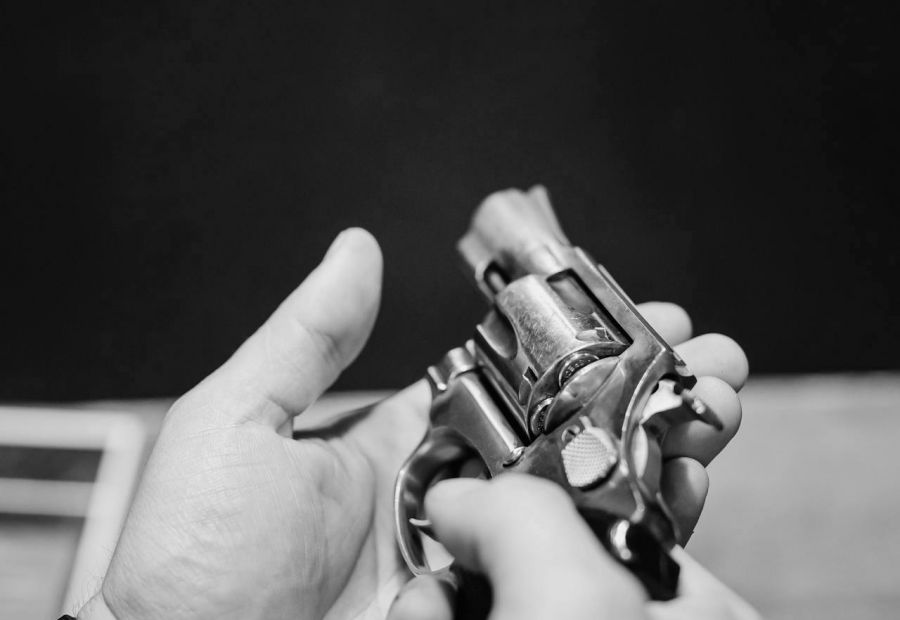What is the legal age to own and use a firearm in Canada?

By Greg Dunn
Canadians must be 18 to purchase and possess a firearm but those as young as 12 can use them if they have the proper licence.
Those 18 and over can apply for a Possession and Acquisition Licence (PAL) to own a conventional rifle or shotgun. However, if they want to buy a handgun or a restricted weapon they must have a Restricted Possession and Acquisition Licence (RPAL).
Minor’s licences
Those between the ages of 12 to 17 can apply for a Minor’s Licence. According to the RCMP, this is only given to youths who have taken the Canadian Firearms Safety Course and passed the tests, as determined in s.7 of the Firearms Act.
This licence allows youths to borrow non-restricted firearms for approved purposes such as organized shooting competitions, hunting or target practice. They can also purchase ammunition unless there is an age restriction under provincial or territorial law.
The Minor’s Licence does not allow people to bring firearms into Canada, to receive them as a gift or to possess restricted or prohibited weapons.
Before they are granted a Minor's Licence, a Firearms Officer may interview the applicant or their parents. The parents must first agree with the youth having the licence and the conditions under which they may use firearms.
Any restricted or prohibited firearm used by a minor must be registered to an adult who has a valid firearms licence for that class of firearm.
Adult supervision exemption
It should be noted that any youth can use any class of firearm without a licence if they are under the direct and immediate supervision of someone licensed to own that firearm.
“The licensed person should be near enough to the minor to take immediate action to prevent any unsafe or illegal use of the firearm,” the RCMP notes.
This exemption applies to cadets and members of other youth organizations who are learning about the use of firearms or those participating in target practice. It also applies to young people who go hunting or who use restricted or prohibited firearms in organized shooting competitions.
Children under 12 may use firearms to hunt in order to sustain themselves and their families, such as children in indigenous communities.
At the age of 18, people must apply for a PAL.
How much does a Minor’s Licence cost?
According to the RCMP, this is a $10 charge for a one-year Minor's Licence. The price doubles for a two-year licence and triples to $30 for any period longer than two years. Replacement licences are $10.
Many air guns are firearms
There are two general types of air guns (also known as BB, pellet, spring or airsoft guns):
- air (pneumatic system)
- spring (spring-air)
A third type, powered by CO2/nitrogen, is subject to the same rules as airguns.
For the purpose of both the Firearms Act and the Criminal Code, air guns are considered to be firearms if they have a high muzzle velocity (greater than 152.4 metres or 500 feet per second) and a high muzzle energy (greater than 5.7 joules or 4.2 foot-pounds).
According to the RCMP, “these high-powered air guns are subject to the same licence and registration requirements as a conventional firearm. Owners and users must store, transport, display and handle them safely in accordance with the regulations supporting the Firearms Act.”
The user manual or the manufacturer’s website should give the muzzle velocity and muzzle energy rating for the airgun.
“If the information is not available, you should contact the Canadian Firearms Program (CFP) and ask to speak to a firearm technician to find out if the air gun is considered to be a firearm for purposes of the Firearms Act,” the RCMP states.
Air rifles manufactured to resemble assault rifles can be classified as either non-restricted, restricted or prohibited weapons depending on the exact model imitated, the police force states.
“High-powered air rifles would also be prohibited firearms if fully automatic or if they have a sawed-off barrel,” the RCMP adds. “They could also be restricted firearms if they have a folding stock that reduces the overall length to less than 660mm.”
Air guns that fall under the muzzle velocity and energy cut-off listed above are exempt from all licensing, registration and other requirements under the Firearms Act.
However, they will still be considered to be firearms under the Criminal Code if they are used to commit a crime, with the same penalties given as those who use a regular firearm during the commission of a crime.
Three youths charged in Calgary
Three youths are facing 42 assault and weapons-related charges after a June 2023 incident in Calgary, according to a news report.
It states that police received multiple calls about projectiles being shot from a Hyundai Sonata. After a “high-risk vehicle stop” three youths, ages 16 to 17, were taken into custody and two airsoft guns were seized.
“The victimization of Calgarians through the use of firearms in any crime, or perceived use of firearms such as airsoft guns, is very real and can have lasting impacts on victims,” a police spokesman noted.
What if a minor uses a firearm to commit an offence?
Under the Youth Criminal Justice Act, the use of a firearm in a crime will be considered an aggravating factor during sentencing.
The maximum sentence under the Act is 10 years, though serious crimes committed by youth can be dealt with by the regular court system with life sentences possible.
Contact us for assistance
People of all ages can be charged with weapons offences. A conviction may include a criminal record, the confiscation of your firearms and a prohibition on owning firearms in the future. If you or a family member is facing a firearms-related charge, call us for a free consultation. We understand the challenges firearms owners face and we have experience in standing up for their rights.
